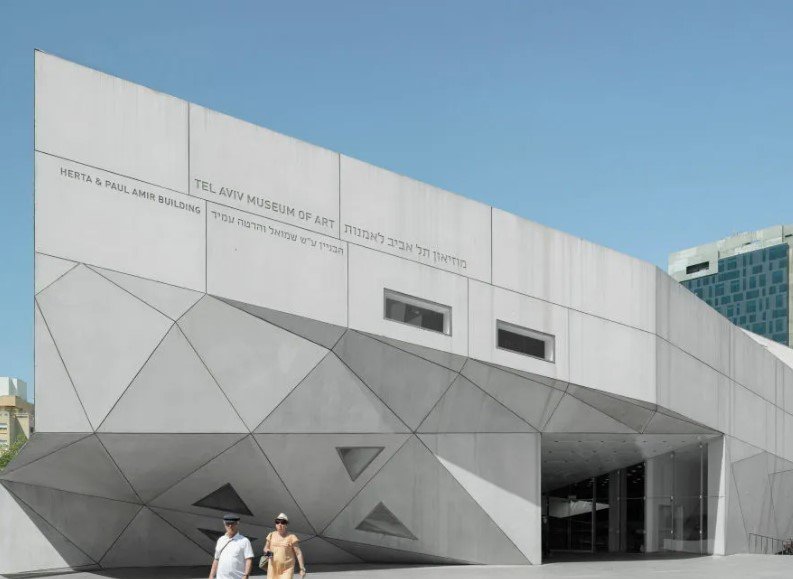More than 50 artists and cultural figures have signed a letter urging Judy Chicago and Nadya Tolokonnikova to pull their joint exhibition from the Tel Aviv Museum of Art. The call comes amid accusations that the show helps normalize Israel’s actions in Gaza, where a United Nations report recently found evidence of genocide.
The exhibition, titled What If Women Ruled the World, opened last week and features a collaborative digital quilt exploring feminist themes. Critics argue it ignores the ongoing violence, including the deaths of over 28,000 women and girls in Gaza since October 2023, according to UN Women data.
Details of the Open Letter
The letter highlights how the show could project a false sense of normalcy during what signatories describe as Israel’s destruction of Gaza’s people, history, and culture. It urges the artists not to lend their names to institutions tied to the conflict.
Many signatories live in Israel, including musicians and educators who say they want to voice objection without helping to mask the crisis. The document points out contradictions between the exhibition’s feminist message and real-world violations of women’s rights in the region.
It also references broader impacts, such as the loss of cultural heritage sites in Gaza. Supporters of the letter believe international artists should avoid partnerships that might downplay the humanitarian toll.
Responses from the Artists
Nadya Tolokonnikova, known for her activism with Pussy Riot, stated she helped start the project but stepped away years ago. She has no role in current decisions about where the work appears.
Judy Chicago, famous for her groundbreaking feminist art like The Dinner Party from the 1970s, chose not to comment on the controversy. Her work often focuses on women’s empowerment through community and dialogue.

Both artists have histories of challenging power structures. Tolokonnikova faced imprisonment in Russia for her protests, while Chicago has long critiqued oppression in her pieces.
The lack of direct involvement from the artists raises questions about how collaborative works are managed in politically charged settings.
Some observers note that Tolokonnikova’s past activism against authoritarianism aligns with calls for justice, but her distance from the project leaves the response unclear.
Museum’s Position and Defense
The Tel Aviv Museum of Art stands firm on hosting the exhibition. A spokesperson said canceling shows does not address the destruction and instead aims to foster reflection and dialogue.
Museum director Tania Coen-Uzzielli expressed horror at the Gaza situation and called for an end to the war. She argued that art spaces should highlight the toll rather than shut down.
The show is presented with partners like the Nassima Landau Foundation and tech firm DMINTI. It has traveled globally since its creation three years ago, shown in various institutions without the artists’ hands-on role.
Officials emphasize that the quilt promotes empathy and shared experiences, not any political stance.
Background on the Exhibition
What If Women Ruled the World began as a participatory project blending Chicago’s awareness-raising style with Tolokonnikova’s bold activism. It invites global input on feminist ideals through a digital format.
The work has appeared in places like Miami and New York, sparking discussions on gender and power. In Tel Aviv, it affirms feminism as a diverse field of voices.
Critics question its timing and location, given the conflict’s escalation. Recent events include Israel’s military operations in Gaza, leading to widespread displacement and loss.
| Key Elements of the Exhibition | Description |
|---|---|
| Format | Digital quilt with user contributions |
| Themes | Feminism, empathy, global activism |
| Partners | Nassima Landau Foundation, DMINTI |
| Global Reach | Shown in multiple countries since 2022 |
| Current Run | Opened September 2025 in Tel Aviv |
This table shows the project’s scope, which some say clashes with local realities.
Broader Art World Reactions
Similar controversies have hit other exhibitions. For instance, protests disrupted a New York show last year over depictions related to the October 2023 attacks.
Artists worldwide are increasingly vocal about boycotts. Posts on social media platforms reflect divided opinions, with some praising the letter as a stand against artwashing, while others defend cultural exchange.
In recent months, museums in Europe and the US have faced calls to address the Gaza crisis in their programming. This includes petitions against events seen as ignoring Palestinian suffering.
The debate ties into larger questions about art’s role in politics. Feminists argue that true activism must confront all forms of oppression, including those in conflict zones.
Impact on Feminism and Cultural Activism
The letter challenges how feminist art engages with global issues. Signatories say ignoring Gaza’s women undermines the movement’s core values.
It also spotlights Israel’s cultural institutions during wartime. Some artists based there feel torn between local ties and international solidarity.
Looking ahead, this could influence future collaborations. Experts suggest more scrutiny on where and how activist art is displayed.
- Key concerns from the letter: Violation of feminist principles amid violence against women in Gaza.
- Potential outcomes: Increased boycotts or dialogues in the art community.
- Broader lesson: Art must align with justice to avoid hypocrisy.
As the war continues into 2025, with over 41,000 total deaths reported by Gaza health officials, such disputes highlight tensions between creativity and conscience.
We invite readers to share their thoughts on this controversy in the comments below or spread the word on social media to keep the conversation going.
